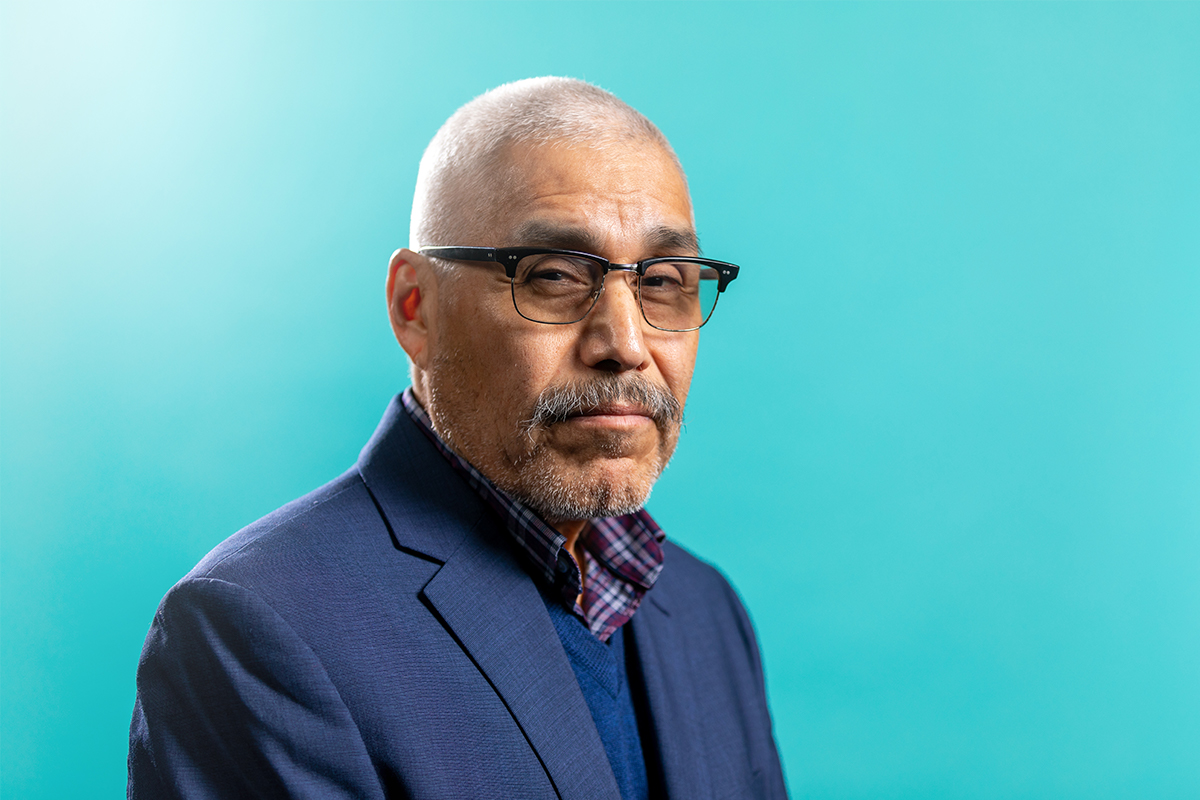
How mindfulness and meditation can help us adjust to a new normal
Meet Indigenous scholar and dean of social work Dr. Michael Yellow Bird
As families adjust to new ways of learning remotely, Dr. Michael Yellow Bird continues to rely on his long-term mindfulness training and teaching experience as a Certified Mindfulness Teacher (CMT) to navigate the COVID-19 pandemic. Building off a healthy mindset, Dr. Yellow Bird and his family have also been engaging in physical activity, brain games and watching educational videos to ensure his household stays a rich learning environment.
“Engaging with my children about the world around them, about what they are thinking, and how they are seeing the world, is a big part of our family time,” he says.
Early education and decolonizing academia
Growing up, Dr. Yellow Bird recalls living his youth as a “free-range rez kid,” who rode horses, explored the hills and plains on his reservation, and ran track and played basketball. A member of the Mandan, Hidatsa and Arikara nations in North Dakota, he attended a Bureau of Indian Affairs day grade school on his reservation, where ridicule and punishment were frequent and at times unforgiving. In high school, he attended a Catholic boarding residential school.
His at-home learning, however, was much more fulfilling in an environment that promoted reading and exploring. “My education was enhanced considerably by frequent visits not only on the lands but also to the bookmobile buses that could come to the reservation during the summer months,” he explains. “I would check out books well-beyond my reading comprehension, which helped to feed my already well-developed foundation of curiosity. Entering new worlds through my reading helped to mediate a lot of my difficult experiences.”
Dr. Yellow Bird’s love of basketball stayed with him into his early post-secondary days, where he played college basketball and was enrolled as a music major, but instead graduated with a bachelor of social work in 1979 at the University of North Dakota.
“I was one of a few first-generation Indigenous students starting university in a program called Upward Bound,” he says. “I was grateful to learn from some anti-war and civil rights students and groups, which helped me gain self-awareness and a greater understanding of the world and all its political and social challenges.”
Later in his studies, Dr. Yellow Bird worked under the mentorship of Ron Lewis, who is considered the father of Native American social work and the first American Indigenous PhD graduate in the field in 1974. “He was a great mentor who had been on the frontlines from movements related to Alcatraz and Wounded Knee. He instilled in me the commitment to activism and how to bring that into scholarship.”
Over the course of pursuing his master’s [‘80] and PhD [‘94] in social work from the University of Wisconsin, Dr. Yellow Bird’s interest in decolonization grew. In particular, his research interests became rooted in breaking down binaries often promoted through academia, such as Indigenous knowledge systems vs. European/Western knowledge systems. Specifically, he became invested in understanding the various systems each diverse group of Indigenous Peoples relied on before contact.
“As Indigenous Peoples, we had the scientific method, we had written word forms, we had complex trading and principles between groups, and we developed standards of wealth accumulation and capitalism. The Indigenous world is very diverse, ranging from hunter-gather groups to towns, confederacies and empires,” he says.
Incorporating mindfulness into practice
While we shift back into face-to-face learning and working, Dr. Yellow Bird will be relying heavily on achieving mindfulness through meditation during the adjustment. He says that taking even five-minute breaks to sit back and pay attention to your breath and body can be a good place to start.
“By staying committed to your breathing and allowing your thoughts, emotions and bodily sensations to drift into the background, you can begin shifting your relationship with stress, rumination and distraction.” By doing so, the body regulates stress hormones like cortisol and releases helpful neurotransmitters such as dopamine and serotonin, which can aid in achieving a sense of relaxation and reward during otherwise stressful times.
For students, particularly those considering a career in social work, Dr. Yellow Bird suggests incorporating mindfulness techniques into practice as a form of self-care. He acknowledges both the rewards and the demands of committing yourself to a career rooted in relationship-building.
“When working with people who have been marginalized and oppressed by society, you are also working with their fears, confusion, traumas histories,” he says. “People in the social work role require a strong sense of self, compassion, courage, activism and allyship with those they work with.”
And while the last year and a half has been a challenge, Dr. Yellow Bird remains optimistic. “Trauma can surface at any point in our lives. It’s about loss. We lose people, we lose our health, we lose our way and we lose hope. Developing a strong sense of resilience is critical, and to me, mindfulness will enable resilience to bloom in our lives,” he explains. “It’s a traditional practice of all cultures. Without our contemplative practices, such as mindfulness, it’s doubtful that we humans would exist at all.”






